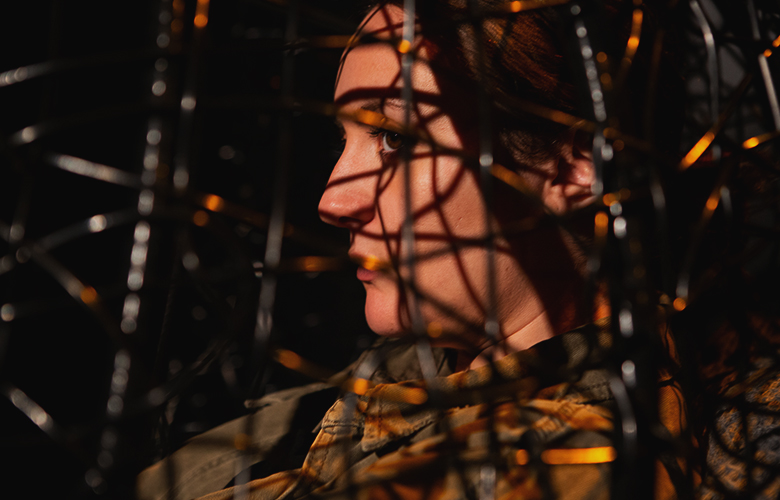
Gosh, there is a lot of information to take on board at the moment. There is just so much going on. Everywhere. It feels that we are now based on the internet and not in the real world at all. I’ve now been living in isolation for four months due to the global pandemic. Quite an experience fraught with both challenges and opportunities. Opportunities for meaningful change if only the right voices can be heard in the right places.
Economic pressures around the world have meant that many governments are loosening their lockdowns. That has happened quite rapidly in the UK where I am based, and where really, we’ve had a succession of vague and mixed messages about how to keep each other safe. Frustrated by isolation and restricted lives, people are hungry to be ‘free’ and ‘back to normal’. And so now, we see lots of people taking big risks with their own health and lives, and those of others.
If I get this, Covid 19, I’m gone. I’m gone, mainly because I am a disabled woman and I won’t get the same treatment non-disabled people do. I won’t get the same opportunity to fight it and live. Neo-liberal societies don’t value the lives and contributions of disabled people. We’re viewed as ‘less than’, and certain powerful ideologues would rather have a ‘cleaner species’. Scary stuff and a bit confusing, especially as most members of the human race are going to become disabled as we age. It’s a natural part of life.
That’s what I’m here to write about after all – is there a guide to involving disabled people in performing arts? If there were, what would it say? First of all – performing arts? Isn’t that just a bit of frivolous fun? What possible difference can that make to peoples’ lives? And second of all, on reading that this was going to be a ‘guide’, you might expect me to write a quick to-do list of accessibility tips and tricks. Which actually I can do at the drop of a hat. It’s as easy as a click of the fingers, listing items 1, 2, 3, 4, 5, there you go, practical steps – done and dusted.
Only if we think back to my first paragraphs, and the backdrop I’m writing this against, in the UK two-thirds of people who have died in the pandemic so far, have been disabled people, and disabled women are 11 times more likely to die based on current statistics. The narrative created around ‘vulnerability’ and ‘underlying conditions’, has made it sound as if our deaths are inevitable. Expected and accepted. Yes, disabled people may be more susceptible to the impact of the virus, but the greater threat is that we are triaged and our care decided before we even get ill. Frailty scores are embedded in health professional training even if they are not spoken of as such. We’re not a priority. The ‘who will get a ventilator discussion…’
This means that all life is not perceived as equal. And it’s a story that has been repeated throughout history, from the Romans putting disabled children out on the hillsides to perish as they were deemed useless, through to compulsory or coercive sterilization programmes of disabled women across the world, through to not bothering to count the deaths of learning disabled people due to Covid.
This is why it is important, critical in my opinion, to involve disabled people in performing arts, in theatre, in TV or film; it is actually a vital means of staying alive. It’s where we have visibility in culture and it’s where we get to tell our stories. Without that we are completely invisible. More at risk.
We fight to be seen as equal, and treated as equal, in society’s systems and structures. Our low status is embedded in our national psyches because of historical and cultural misrepresentation – shown as deficient, less than, less able, tragic, useless.
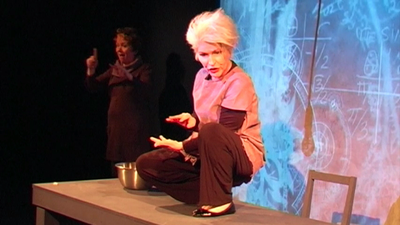
Dominant culture, the thing that preserves the status quo no matter how ugly and unequal it is, tells the stories of disabled people in film, TV and theatre as great tragedies, which are to be overcome or destined to have desperately sad endings. We’re the butt of jokes or we’re there as the foil to a main protagonist’s story. Dominant culture just hasn’t been interested in re-telling or challenging these stories with disabled people at the helm. But this makes so little sense – again if most of us will become disabled as we age, and if as much as 20-25% of the population consists of disabled people (as it does where I live), why do we repeat the same old stereotypes, the same old narratives, reinforce our ill-informed historical beliefs and terrify each other that it’s not a life worth living to be disabled?
Of course, we have fought for space and set up companies ourselves but due to the societal encoding of disability as deficient, we are under-resourced and given lesser spaces. It’s rarely high-profile work. Arguments are put forward that it’s because ‘you’re not famous – they need big names’. Well, we’ll never be big names if we aren’t involved, included and given leadership and decision-making roles.
It’s not about being a big name for most of us though. It’s about moving towards a point where statistically we are represented more proportionately to the percentage of society we make up. Recent diversity research undertaken by Arts Council England revealed disgraceful statistics about levels of diversity in employment in English arts.
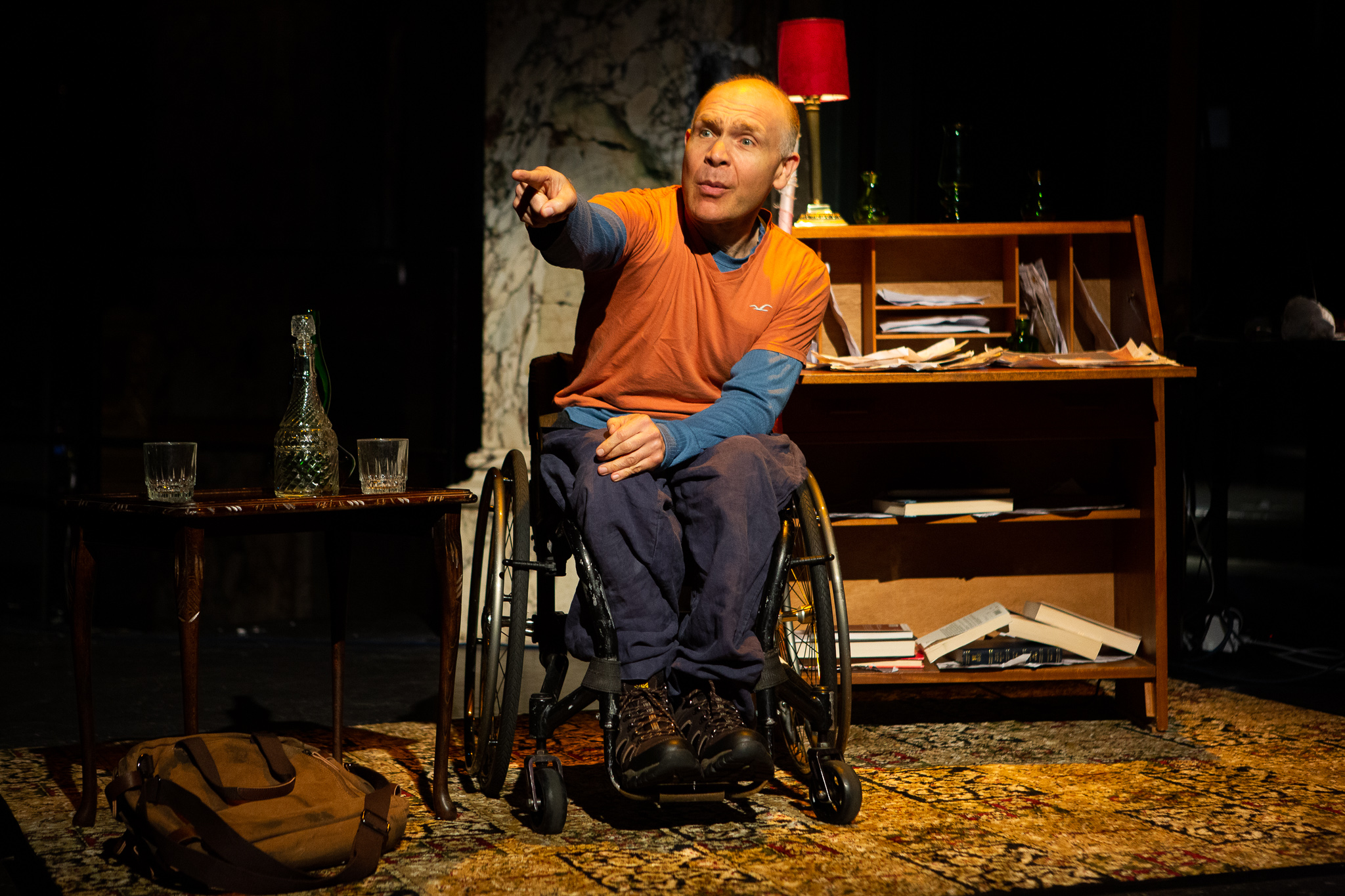
Involving disabled people in the performing arts has to begin by acknowledging the historical misrepresentation and stereotyping that is present in much of the canons of theatre and film. We can’t keep telling those old stories in those old ways. And we have to address institutional and structural ableism – the discrimination and exclusion of disabled people at all levels in the arts. We’re not novelties and curiosities for non-disabled actors to ‘extend their range’ and contort their bodies into Oscar winning roles.
I’ve been talking a lot about ‘crip-taking’ lately. Another film has come out, American I think, and launching in Europe soon, which has cast non-disabled people as disabled characters. Cultural theft. Taking our voices, taking our stories and taking our roles. It has to stop. Surrounded by phrases like ‘heart-warming, inspiring and special’ – we are not your entertainment! It ultimately means we die first in pandemics. Please join the dots and see the cultural journey our thinking as societies takes. What it reinforces and perpetuates. Where it ends up.
Disabled people know very well the non-disabled puffed-up-chested affrontery at suggestions that non-disabled people should not impersonate and mimic us. Cries of ‘surely that is precisely what acting is where one can play anyone when one is acting’, or, ‘political correctness gone mad’ and ‘next we’ll be saying that only boxers can play boxers and only teachers can play teachers’. It’s not about that at all. It’s about the baggage you didn’t know you had, already telling you that our lives are only worthy of impersonating and making a novelty or a tragedy of. That work, those films and theatre shows where non-disabled people crip-take, do nothing to change our status, to challenge the stereotypes about us, put us any higher up anyone’s list of priorities, and/ or reveal anything of our cultural richness. There are things about us you don’t even know, and if you don’t know them, the cultural landscape is a lie. We are not telling or reflecting the truth about who we are. We are hiding it.
And please don’t tell me that there are no disabled producers, directors, writers or actors out there. I’ve been doing this for thirty years and have worked with some of the most talented, insightful, innovative trailblazers in our world who will one day achieve recognition. Dominant culture just doesn’t know where to look – or perhaps it does, and then chooses to look the other way. Why is that?
And, how do we involve disabled artists in performing arts? We involve disabled artists at every level, from the very beginning. Look, okay, here’s the access stuff, the list, the 1, 2, 3, 4, 5. The access stuff really is the basics, we shouldn’t have to tell you about it as it’s been legislation for decades, and it is constant emotional unpaid labour to us to be educators.
As it happens, we can tell ya a lot of the practical stuff in our sleep and do a quick budget projection on the side. Lift and level access, BSL interpreters, audio description, neurodivergent accessibility and relaxed environments, regular breaks, adapt rehearsal rooms and rehearsal methods, stop holding workshops, auditions and rehearsals and training up or down flights of stairs, ask us what our access requirements are, remember we’re not frail or going to cry at our own misfortune. Remember that we know what we’re doing, we’re professionals. We love sex and Elvis and whisky and cake just as much as you do. We are producers, directors, writers and actors. We are cultural leaders already, we are actors already – but because of society’s ‘less than’ view of us we don’t get invested in. And no thank you, I don’t mean we want another meaningless training course or development initiative. We want tangibles, we want the work, but somehow things flip around and we always have to be ‘more than’ to get a shot.
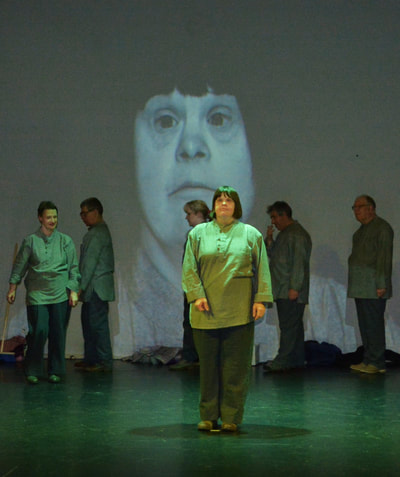
Over the years, when we were given spaces, sometimes we needed safe spaces to play to each other, and other times we needed studios and bigger stages. The danger was that we’d only end up inhabiting specific spaces which can be a double-edged sword. Niches and ghettos and silos. We have needed those spaces to support each other, to grow our craft but we also deserve the investment of greater scale. Not everything has to be on huge stages, intimate work is as important and impactful but it needs to be well resourced. I feel I’ve worked hard and earned a main stage large scale production but the argument will be ‘risk’. Not everything is about scale, but sometimes when you are under-represented it has to be factored in. And not in diluted mainstream work but in genuinely disabled-led work. I hope the clock of change is ticking playmates.
And we have to ask you to check your privilege, every day, and leave your ego at the door, whichever community you are from, as we seem the bottom of everyone’s priority list. See us, talk to us, involve us and invest in us.
In isolation in lock down, I have had two small commissions to write two new plays and created an online digital short film. I am making a slightly bigger digital piece which will be broadcast online in August with three amazing actors, examples of phenomenal British talent. I have been commissioned for two new pieces of work. I have commissioned three disabled artists through my company Little Cog and a disabled artist led collective I work with has just created 15 mini-commissions with disabled artists. There are a lot of us out here making fantastic work. Very little of this will get national arts coverage. It just doesn’t get the profile because the baggage attached to the word disabled. Thirty years, and barely anyone in theatre in my own region knows my name. Or if they do, they don’t talk to me.
I’m proud to be a disabled person – to say so is a political act. An act of resistance and a disruption to the status quo. The disabled people who have done this before me paved the way for change in the way that myself and other activists are doing for future generations. One day the societal penny will drop – our work will be seen, valued and invested in. We see it, we are excited by it and we are a massive audience for genuine work where disabled people are leading and centre-stage.
Get in touch and let’s talk this through.
Diversity in Arts: You Can’t Just “Do” Diversity
Embracing Disruption to Your Daily Routine
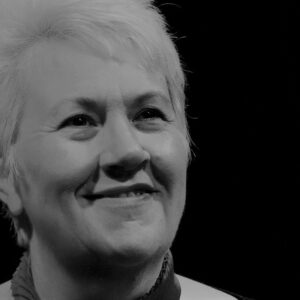

Vici is a British disabled playwright, screenwriter, activist, and equality strategist. She is the Artistic Director of Little Cog which is a disabled-led theatre company based in the North East of England. She has been active in the UK Disability Arts movement for almost thirty years and has developed a number of pioneering projects and productions to ensure that the stories of disabled people are placed centre-stage in the arts. Vici has created a number of innovations in how the theatre sector can include and involve disabled people at all levels. She is passionate that Little Cog develops original new work that is rich, radical and brings a new aesthetic, and is symbiotic in its relationship with new cultural thinking. Little Cog is based at ARC Stockton, a multi artform venue based in the heart of a number of communities, and together have created a unique model of disability equality practice in a venue. Vici is a co-founder of Disconsortia which is a collective of incredible disabled artists from all artforms, carving out a regional voice for change. Vici is one of the founding members of a new UK wide Disability Arts Alliance, formed as an emergency response to the pandemic to ensure there is a sustainable future for disabled artists through and after the crisis, and aiming to amplify the voices of disabled artists. Vici’s own work tours nationally in the UK and the British Council have supported her to be involved in a number of international events. Her production of her own play Butterfly was named Best One Person Play by the British Theatre Guide. She is currently working on a number of digital productions and is in the process of commissioning a number of disabled artists to ensure excellent work remains visible.
Read Full Profile© 2021 TheatreArtLife. All rights reserved.

Thank you so much for reading, but you have now reached your free article limit for this month.
Our contributors are currently writing more articles for you to enjoy.
To keep reading, all you have to do is become a subscriber and then you can read unlimited articles anytime.
Your investment will help us continue to ignite connections across the globe in live entertainment and build this community for industry professionals.